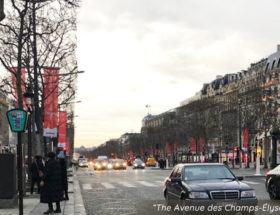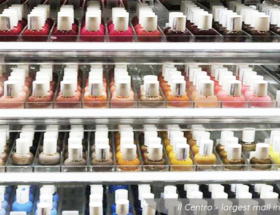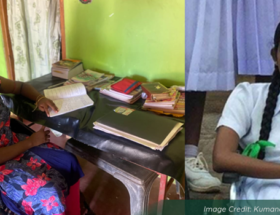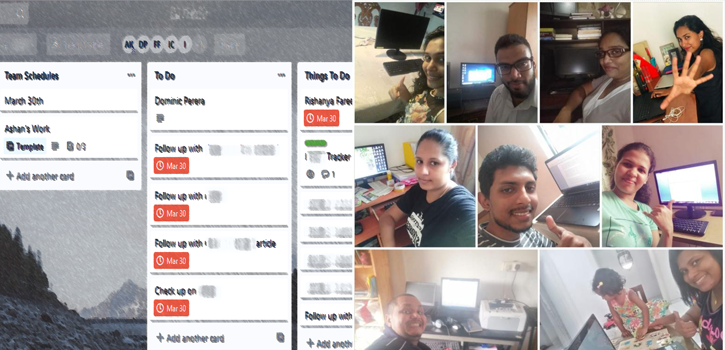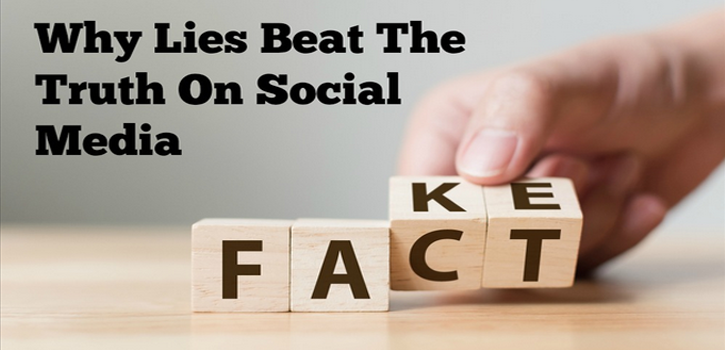By Ashan Kumar
I was honored to represent Sri Lanka at this year’s SPECTRA Plus 2021, the online version of PRAXIS, which is the World’s largest Reputation Management Forum. “Future of Communication in South Asia” was a discussion moderated by Hemant Gaule, School of Communication & Reputation comprising of eminent panelists Shamima Akhter, Unilever (Bangladesh), Pranu Singh, Standard Chartered (Nepal) and Hasan Zuberi, Council of Public Relations (Pakistan) and myself. 58 speakers from 11 countries, 1200 delegates from 22 countries actively participated on a very unique online conference focusing on reputation management.
Our objective for the discussion was to highlight opportunities and challenges which are common to communication business in the South Asian region. Topic points covered on areas such as how reputation is defined, region-wise, whether PR has a seat at the table, and the opportunities that lie ahead. Below are excerpts of the thoughts which were shared:
Sri Lanka is a country with a GDP per capita of US$ 3800 and a population of over 24 million blessed with abundant resources. Being a democratic nation Sri Lankans have an opportunity to discuss on topics of social, economic, environmental and political challenges. Sri Lanka is also no stranger to market economy since from 1977, citizens have been enjoying an open economy.
As a result of being exposed to various brands and promotions for over four decades since ‘77, Lankans are no strangers to consumer market offerings. Thus this is a perfect time to gauge Lankans’ impressions on the new brand equity: Trust.
The 2021 Edelman Trust Barometer Special Report: Trust, The New Brand Equity revealed that ‘trust’ ranking higher than brand ‘love’. Highly trusted brands are seven times more likely to be purchased, Edelman found.
With this new realization, we decided to survey Sri Lankans’ take on what makes them trusting a brand. We conducted an Opinion Survey in the month of June 2021 with a respondent sample 114 on the status quo of what the Lankans expect from brands and companies.
We found three distinctive calls by Lankans all of which lead to a brand’s trust: Transparency, Purpose and a Better Experience. We also found that Sri Lankans, as brand consumers, are not a quarantined market from the rest of global consumers; they are as dynamic as the global market!
Lankans Demand Transparency: Over 85% of respondents wanted to know the truth, only the truth and nothing but the truth on not only the brands they engage with but even on socio-political issues. For example, when a Container ship carrying toxic chemicals caught fire and resulted in what was called as the biggest Marine Ocean issue in Sri Lanka’s history by the media, concerned people, youth, communities, environmentalists, and activists converged into a sole voice-and demanded the truth be shared on the actual extent of the damage. The result was that respective authorities and state institutions swiftly carried out ocean and coastal protective measures which halted the spread of the damage. The catastrophe impacted on our vibrant marine life, threatening endangered species and even social facets such as livelihoods of fishing communities and the quality of seafood consumed. As authorities finally acted due to the general public’s collective voice, relevant safeguards too finally began to be effected.
The State was finally forced intervene due to its lack of transparently, and responsibilities were duly fulfilled thanks to the continuous and the collective protests made on social and mainstream media. Additional coastal protection was also activated around the island to further safeguard the nation’s marine ecosystem and interconnected social dynamics.
Lankans Care about Purpose: Over 65% Gen-Z respondents wanted to feel a part of the larger promise and belief of a brand.
They wanted to connect with the true meaning of the brand and what it has to offer to them not only personally / individually (“for me”) but also to the community, to the country and to the whole world (“we”) (interestingly this is identical to the pattern discovered by Edelman’s survey. It showed people are more focused on the “we” than the “me”-63% of respondents were more attracted to “Brands that focus on making the world a better place” while only 37% were attracted to “Brands that focus on making me a better person”).
As a brand what you say does not matter anymore to Sri Lankans but the actions you take are what matters– Brands and Companies should understand that in the new normal it is the “context” and its authenticity -rather than content- that ultimately results in Brand Intent. Our research also found a 15% increase in the level of actions on Brand Purpose and Purpose Stories by both local and multi-national firms- a sign that the Brands are now starting to work on creating a meaning to them.
Lankans Want a Better Experience: All respondents (100%) rated “experience” and “overall satisfaction of experience” as a key point of concern. The fact that Sri Lanka is not a market in par with highly developed economies (where brand experience is not a priority unlike in Sri Lanka) likely be the reason for this. Most companies and countries faced many challenges from the COVID crisis. Many brands struggled to maintain their general service standards as they faced many new health, human resource, production, and technological disruptions. One upshot from this is the increased adoption of Digital Platforms. In 2020 ecommerce sales increased by a total of 300% and by 2021 it surged by 450%. The surge was seen in both ecommerce and m-commerce -and this adoption rate is escalating even as we speak.
As mentioned, the three distinct factors of Transparency, Purpose and Better Experience funnel down to two fundamentals in the larger sphere of Reputation Management.
They are Credibility and Trust.
The credibility of your beliefs as a brand, the actions and the level of trust created from the entire experience is preeminent since it emphasizes what your brand is about. This too is identical to the pattern discovered by Edelman’s survey. It showed that for brands that “take a stand”, rewards outweigh the risks! For instance, people are 4.5 times more likely to buy from a brand that commits to a “Healthcare” or a “Human Rights” issue while they 4 times more likely to buy from a brand that commits to “Climate change”. Thus Sri Lankans’ mentality on brands are –in many aspects- as dynamic as the changing global consumer minds.
The takeaways from the survey is a revelation for the Sri Lankan Corporate Communication and Reputation Management industry.
The union of Credibility and Trust becomes the core messaging maxim for any Reputation and Corporate Communication Executive, big or small, Senior, Middle or Junior if they are from Sri Lanka or from any geography. It advocates to the fundamental belief and the drive of being a Communication Professional while simultaneously compelling us to “Think Deeper, Communicate Higher” and more importantly “Act Wider” with greater impact throughout all our intent and existence.


